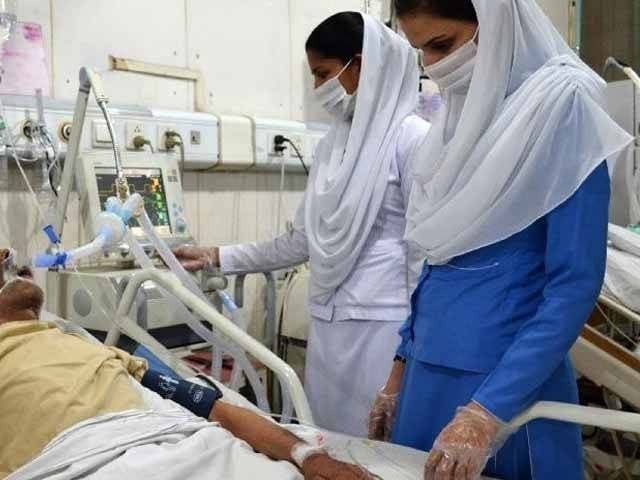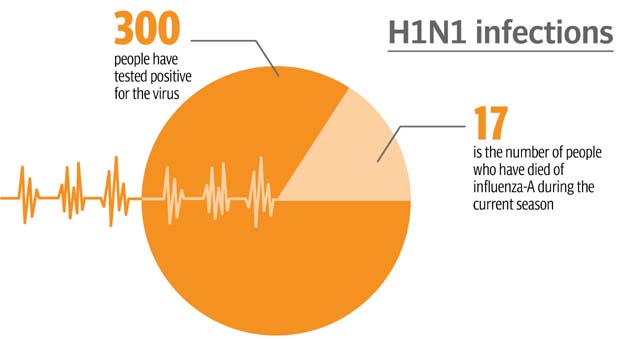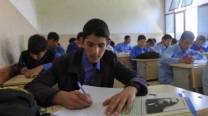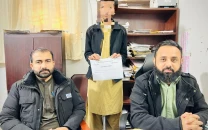Influenza deaths baffle experts
Health officials say poor conditions in South Punjab hospitals could be contributing to virus prevalence

PHOTO: FILE
Officials disclosed this at a seminar held in the capital on Wednesday. The seminar had been organized by the National Institute of Health (NIH) in collaboration with Pakistan Institute of Medical Sciences (PIMS).
Around 1,470 suspected cases of influenza-A (H1N1 pdm09) have been reported from different parts of the country during the ongoing season. Of these, 300 had tested positive for influenza. Most of the cases were reported from South Punjab including Multan, Bahawalpur, Lodhran and Muzaffargarh, though some cases were also reported from other parts of the country as well.
Seasonal influenza: WHO, NIH teams arrive in Multan
According to the NIH, influenza-A and H1N1 has been declared a seasonal flu, but the 17 deaths have caught officials unawares. “We have no information what other chronic diseases these patients were suffering from which affected their condition and caused death,” NIH Field Epidemiology and Disease Surveillance Division (FEDSD) Chief Dr Jameel Ansari stated matter-of-factly.
Dr Ambreen Chaudhry, the surveillance coordinator at NIH, explained the prevailing situation with respect to influenza in Multan.
She explained that their surveillance had uncovered a dearth of facilities at hospitals in Multan. Moreover, she said health officials there did not have any background or medical record of the patients.
“The patients were diagnosed with delay,” she said, adding that many people died just a day after the disease had been diagnosed, meaning there was little time for doctors to start treatment.

Dr Chaudhry recommended that hospitals should dispose of patient’s waste with care and should follow the NIH’s guidelines in this regards.
During the seminar, speakers provided technical guidance on different aspects of influenza including its management, treatment, vaccination, laboratory diagnostics apart from prevention and control measures.
They also gave a global perspective on influenza and highlighted the epidemiology of seasonal influenza and the emergence of pandemic influenza viruses.
First case of swine flu surfaces in Lahore
They suggested control and preventive strategies and emphasized on everyday practice such as hand washing, cough etiquettes and the use of disinfectants to help prevent the spread of the influenza virus. They also explained the high risk posed to groups, availability and use of anti-viral medicines and recommendations on the use of vaccination.
According to an NIH advisory issued last month, pregnant women, the elderly, very young, overweight, obese, immune-compromised and people with chronic health problems such as asthma, diabetes, heart and lungs diseases are at high risk of developing complications due to influenza.
If someone is sick or has been in close contact with people displaying flu-like illness, the advisory recommends they take preventive measures to limit influenza transmission.
Published in The Express Tribune, January 11th, 2018.



















COMMENTS
Comments are moderated and generally will be posted if they are on-topic and not abusive.
For more information, please see our Comments FAQ